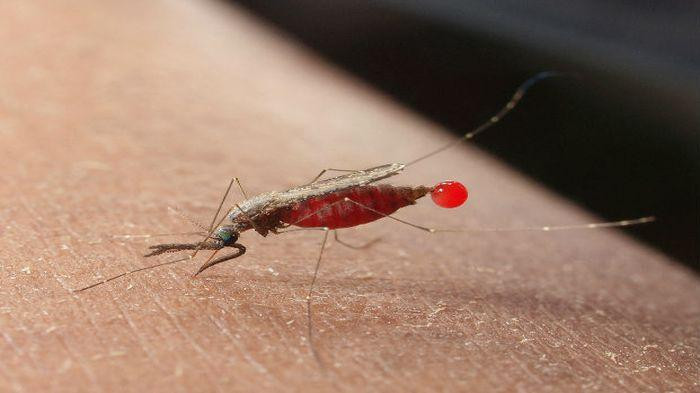Conduct a trial on human malaria vaccine
For the first time in history, scientists have been testing a special vaccine for human malaria to protect humanity from one of the two most dangerous malaria parasites, Plasmodium vivax. .
Specifically, doctors at the Water Reed Research Center (under the US Department of Defense) conducted 3 doses of vaccine for 30 volunteers, then 14 days later they were bitten by the Plasmodium parasite. vivax .
Results showed that vaccines could not prevent Plasmodium vivax infection, but had a significant reduction in disease development time. Besides, the test participants do not have any manifestations of dangerous side effects apart from headaches and fatigue. In addition, testing also faces a certain difficulty that the Plasmodium vivax parasite cannot be created in the laboratory, so doctors have to take mosquitoes that often suck blood from an infected Plasmodium patient. vivax earlier.

Malaria is one of the most common infectious diseases.
The author of the study, Lieutenant Colonel Jason W. Bennett, said this is the first step in the scientific world's issue of introducing a vaccine to control the current malaria situation. In addition, Mr. Bennett added that he and his colleagues discovered a surprise about why the only drug that is capable of regulating by the US Food and Drug Administration (FDA) The treatment for Plasmodium vivax in the incubation period is primaquine, which has no effect on many people, making it not the main drug in the treatment of malaria.
Specifically, scientists have confirmed that people with enzyme levels 2D6 (CYP2D6) in the liver due to genetic reasons will not be able to convert primaquine into antibodies to kill the parasite inside the human body. . Therefore, Lieutenant Colonel Bennett suggested using CRISPR gene editing techniques to limit this disadvantage of primaquine by adjusting the amount of enzyme 2D6 in the liver. He hopes to improve the therapeutic ability of primaquine that will offer many options for patients besides future vaccines.
Although the results of this test just stopped at limiting the rate of disease development, medical experts congratulated Lieutenant Colonel Bennett's research team and they also stated that this would be The basis for scientists to develop a more complete vaccine in the future.

Malaria is spread from one person to another when these people are bitten by mosquitoes.
Malaria is one of the most common infectious diseases and is a very serious problem for public health. The disease is caused by the protozoa parasite of the genus Plasmodium. This genus has four species that make humans infected. The most dangerous is Plasmodium falciparum and Plasmodium vivax . The other two species (Plasmodium ovale, Plasmodium malariae) also cause illness but fewer deaths. The group of Plasmodium species that causes disease in humans is often referred to as the malaria parasite. P. knowlesi species, common in Southeast Asia, causes monkeys in malaria but can also cause severe infections in humans.
Malaria is spread from one person to another when these people are bitten by mosquitoes. The disease is common in tropical and subtropical regions of the Americas, Asia and Africa. Each year, about 515 million people get sick, from 1 to 3 million people die - most are children in the southern Sahara, Africa. 90% of deaths occur here. Malaria is often accompanied by poverty, backwardness and a major obstacle to economic development.
- The trial of malaria vaccine achieved positive results
- The first vaccine against malaria loses its effectiveness after 4 years of injection
- Trial of malaria vaccine failed
- The United States develops 100% immunization against malaria
- The United States accelerates testing of Ebola vaccine in humans
- Successfully tested the vaccine against malaria
- A malaria vaccine has been developed
- A breakthrough in preparing malaria vaccines
- Harvard's HIV vaccine was initially successful on humans
- Hope for a vaccine against malaria
- Malaria changes the smell of patients, makes them more
- The world's first vaccine against malaria is put into use in Africa
 Green tea cleans teeth better than mouthwash?
Green tea cleans teeth better than mouthwash? Death kiss: This is why you should not let anyone kiss your baby's lips
Death kiss: This is why you should not let anyone kiss your baby's lips What is salmonellosis?
What is salmonellosis? Caution should be exercised when using aloe vera through eating and drinking
Caution should be exercised when using aloe vera through eating and drinking